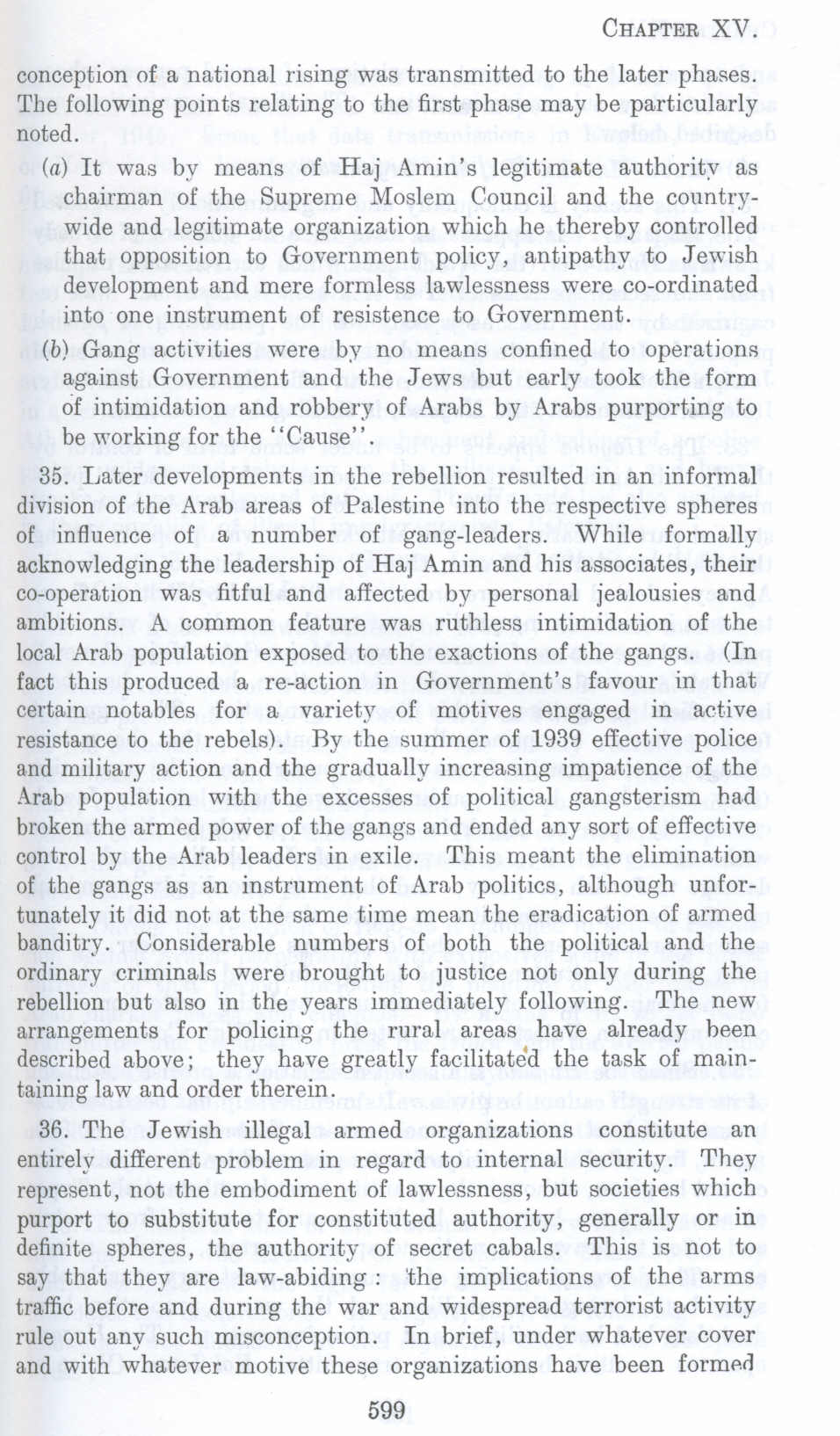| Prev | Next |  |
| Prev | Next |
| PalestineRemembered | About Us | Oral History | العربية | |
| Pictures | Zionist FAQs | Haavara | Maps | |
| Search |
| Camps |
| Districts |
| Acre |
| Baysan |
| Beersheba |
| Bethlehem |
| Gaza |
| Haifa |
| Hebron |
| Jaffa |
| Jericho |
| Jerusalem |
| Jinin |
| Nablus |
| Nazareth |
| Ramallah |
| al-Ramla |
| Safad |
| Tiberias |
| Tulkarm |
| Donate |
| Contact |
| Profile |
| Videos |
British Mandate: A Survey of Palestine: Volume II - Page 599 |
Disclaimer
The above documents, article, interviews, movies, podcasts, or stories reflects solely the research and opinions of its authors. PalestineRemembered.com makes its best effort to validate its contents.


Post Your Comment
*It should be NOTED that your email address won't be shared, and all communications between members will be routed via the website's mail server.
conception of a national rising was transmitted to the later phases. The following points relating to the first phase may be particularly noted.
(a) It was by means of Haj Amin's legitimate authority as chairman of the Supreme Moslem Council and the countrywide and legitimate organization which he thereby controlled that opposition to Government policy, antipathy to Jewish development and mere formless lawlessness were co-ordinated into one instrument of resistence to Government.
(b) Gang activities were by no means confined to operations against Government and the Jews but early took the form of intimidation and robbery of Arabs by Arabs purporting to be working for The "Cause".
35. Later developments in the rebellion resulted in an informal division of the Arab areas of Palestine into the respective spheres of influence of a number of gang-leaders. While formally acknowledging the leadership of Haj Amin and his associates, their co-operation was fitful and affected by personal jealousies and ambitions. A common feature was ruthless intimidation of the local Arab population exposed to the exactions of the gangs. (Jn fact this produced a re-action in Government's favour in that certain notables for a variety of motives engaged in active resistance to the rebels). By the summer of 1939 effective police and military action and the gradually increasing impatience of the Arab population with the excesses of political gangsterism had broken the armed power of the gangs and ended any sort of effective control by the Arab leaders in exile. This meant the elimination of the gangs as an instrument of Arab politics, although unfortunately it did not at the same time mean the eradication of armed banditry. Considerable numbers of both the political and the ordinary criminals were brought to justice not only during the rebellion but also in the years immediately following. The new arrangements for policing the rural areas have already been described above; they have greatly facilitated the task of maintaining law and order therein.
36. The Jewish illegal armed organizations constitute an entirely different problem in regard to internal security. They represent, not the embodiment of lawlessness, but societies which purport to substitute for constituted authority, generally or in definite spheres, the authority of secret cabals. This is not to say that they are law-abiding : 'the implications of the arms traffic before and during the war and widespread terrorist activity rule out any such misconception. In brief, under whatever cover and with whatever motive these organizations have been formed
599